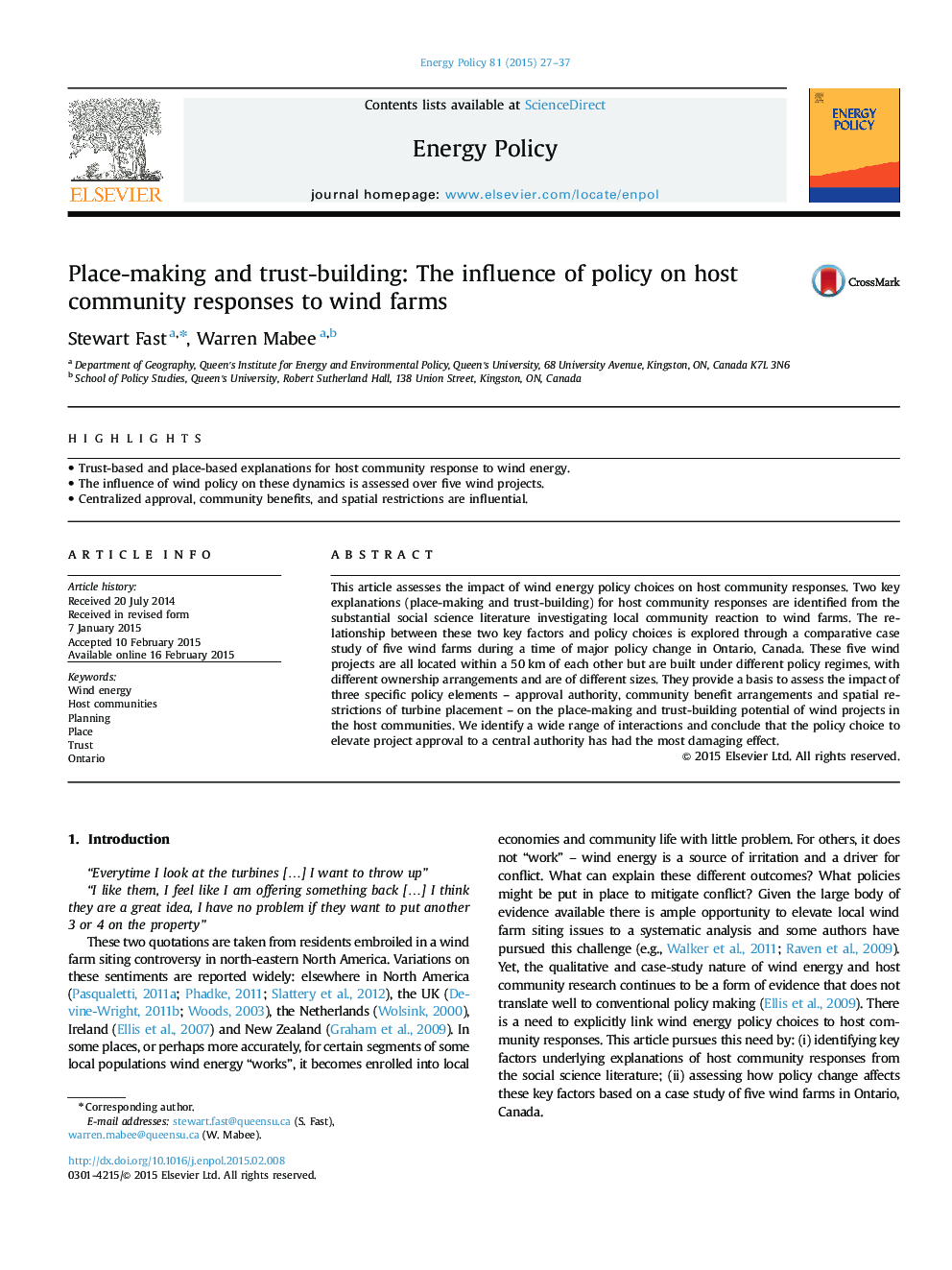| Article ID | Journal | Published Year | Pages | File Type |
|---|---|---|---|---|
| 992848 | Energy Policy | 2015 | 11 Pages |
•Trust-based and place-based explanations for host community response to wind energy.•The influence of wind policy on these dynamics is assessed over five wind projects.•Centralized approval, community benefits, and spatial restrictions are influential.
This article assesses the impact of wind energy policy choices on host community responses. Two key explanations (place-making and trust-building) for host community responses are identified from the substantial social science literature investigating local community reaction to wind farms. The relationship between these two key factors and policy choices is explored through a comparative case study of five wind farms during a time of major policy change in Ontario, Canada. These five wind projects are all located within a 50 km of each other but are built under different policy regimes, with different ownership arrangements and are of different sizes. They provide a basis to assess the impact of three specific policy elements – approval authority, community benefit arrangements and spatial restrictions of turbine placement – on the place-making and trust-building potential of wind projects in the host communities. We identify a wide range of interactions and conclude that the policy choice to elevate project approval to a central authority has had the most damaging effect.
